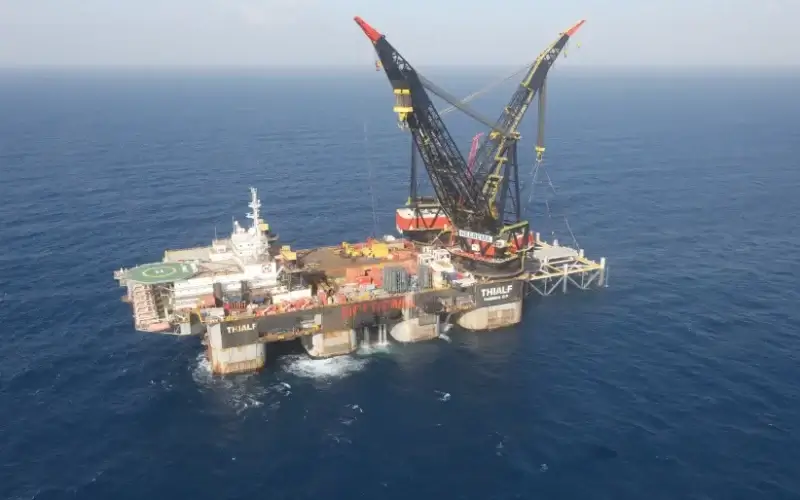Israel is preparing to step into the gap in Europe’s energy market left by sanctions on Russian natural gas as soon as this summer, Energy Minister Karin Elharrar said on Thursday.
“The European energy market is facing a substantial shortage following the Russia crisis,” Elharrar said. “Israel sees an opportunity, and will take full advantage of it.”
Russia provides Europe with about 40% of its natural gas consumption per year, more than 150 billion cubic meters (BCM). Israel cannot totally take Russia’s place, but eastern Mediterranean states can provide about 20 BCM annually, most of which would come from Israel. The US promised Europe 15-20 BCM of liquefied natural gas (LNG) following the Russia sanctions, and Qatar is expected to export 20-30 BCM to Europe.
“We’re not a replacement for Russian gas, but we have a good amount that we can export,” a senior diplomatic source said this week, commenting that the energy issue comes up as “a huge issue for everyone” in most conversations between top Israeli officials and foreign counterparts.
“The question is what is the quickest and most cost-efficient method, and what is most beneficial to all those involved,” said the source.
Elharrar and the EU Commissioner for Energy Kadri Simson established a working group on energy, which Egypt will be joining as well.
The working plan, based on an agreement between Elharrar and her Egyptian counterpart that has yet to be finalized, is for Israeli natural gas to go through Egypt’s plant for liquefaction and then exported to Europe.
An Egyptian diplomatic source confirmed that there are “ongoing talks in light of requests from the European side to see how we can work together in the field of gas to be able to export more to the EU. It is an ongoing discussion that has not been finalized for Israel to export more to Egypt and then Egypt export more to the EU.”
Natural gas cooperation came up in Foreign Minister Yair Lapid’s meeting with Egyptian Foreign Minister Sameh Shoukry last week, at the Negev Summit.
Energy is an “important topic not only between Egypt and Israel but for the broader region,” the Egyptian source said.
The increased exports in cooperation with Egypt will only begin once production begins in the Karish-Tanin field, which Elharrar said will likely be in September.
“We are prepared to examine other options, like producing LNG in Israel and other pipelines,” Elharrar said. “I am meeting with other companies to hear their offers and our options, which we can use to build agreements with other countries.”
One of those options is the long-discussed EastMed Pipeline, from Israel through Cyprus and Greece. The countries have signed agreements to advance the pipeline, but have had trouble getting investments into a project that has been estimated to cost $6 billion.
Foreign Minister Yair Lapid discussed the matter with his Greek and Cypriot counterparts in Athens this week, and Elharrar plans to meet with the countries’ energy ministers in Jerusalem next week.
Turkish President Recep Tayyip Erdogan has also expressed an interest in cooperating with Israel on natural gas, as part of the slowly warming ties between Ankara and Jerusalem, but no actual progress has been made on that front.









